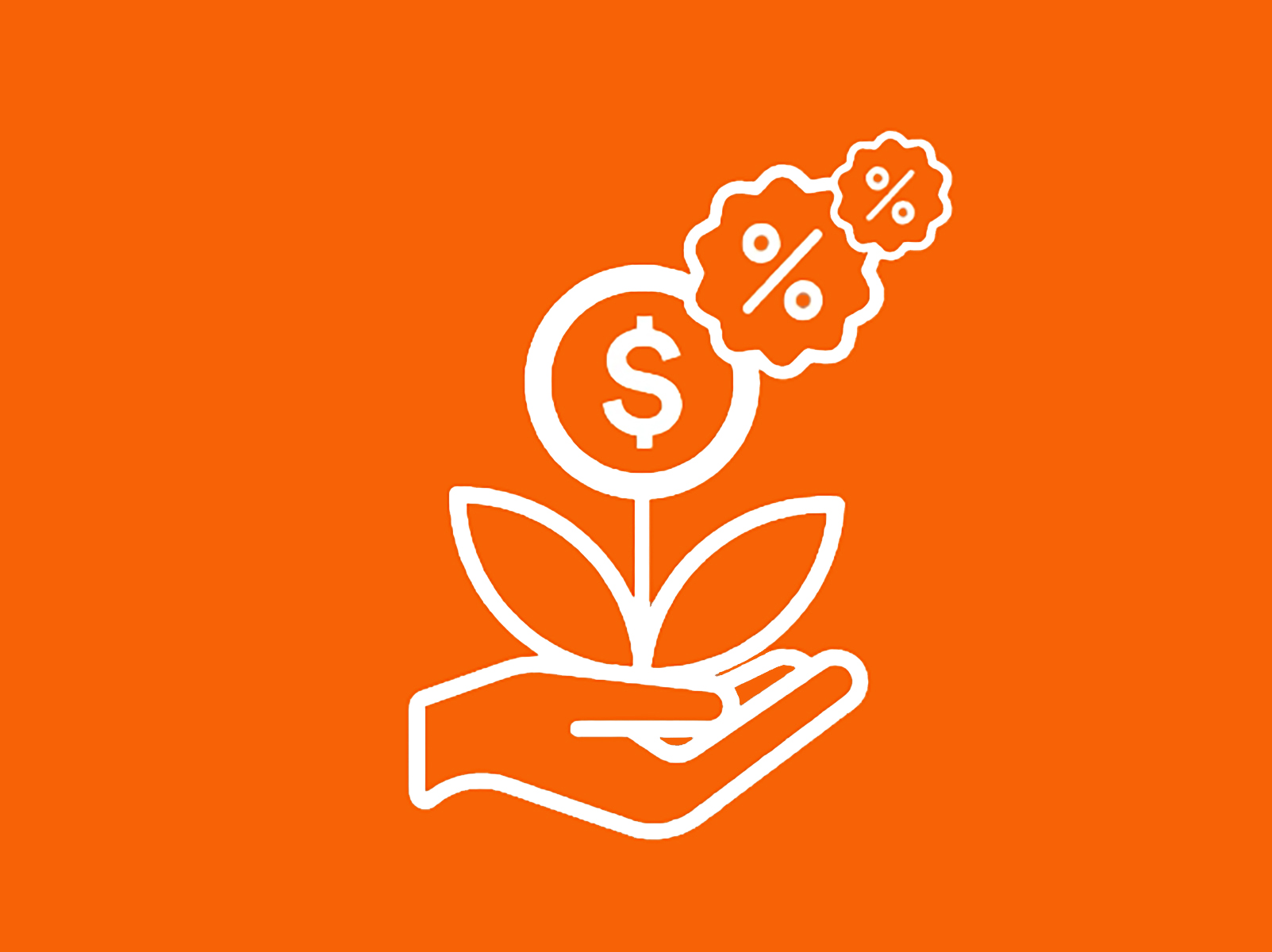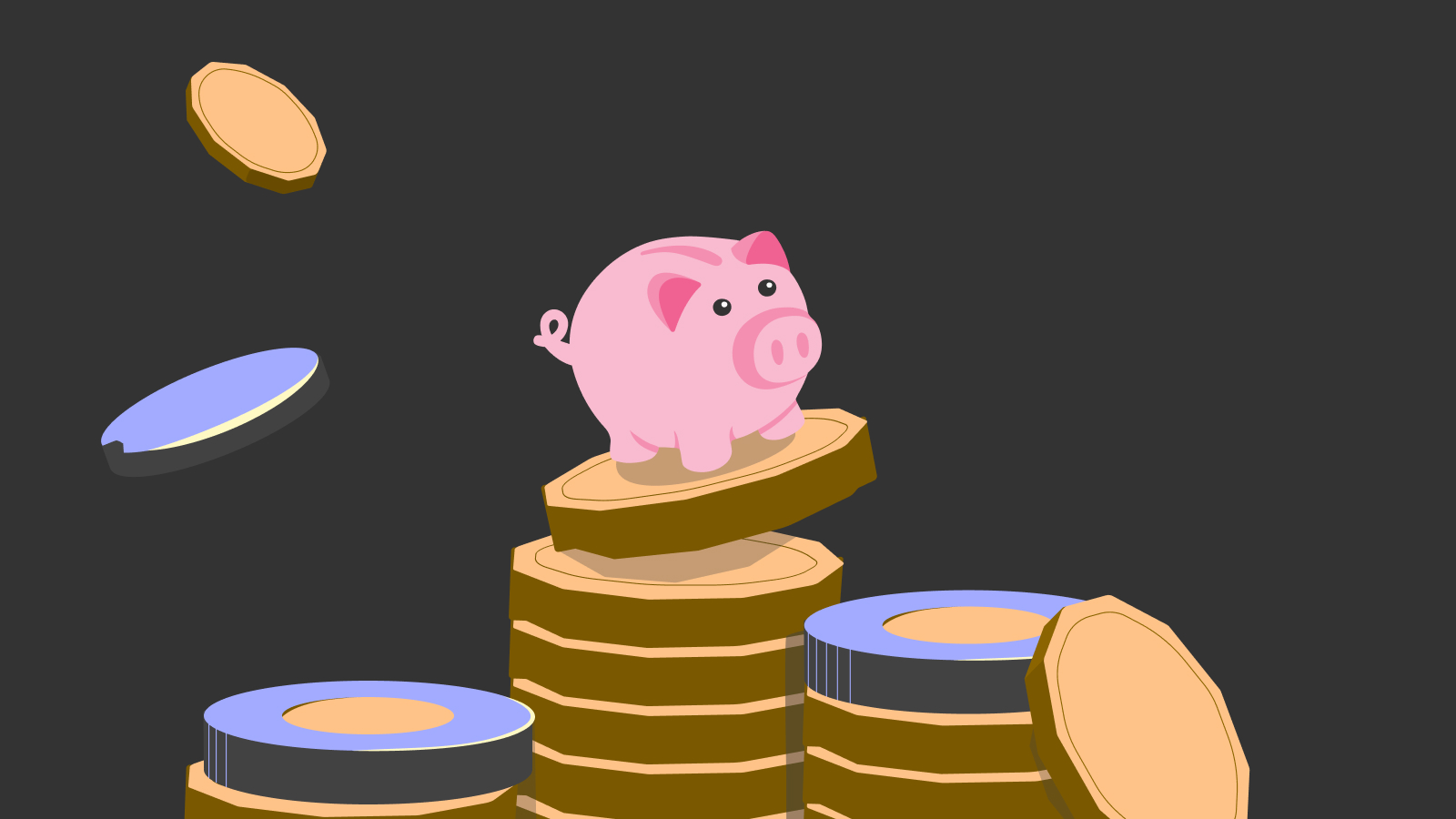A beginner's guide to budgeting
When you hear the word “budget,” do your thoughts automatically wander to boring spreadsheets and penny-pinching? You're not alone. The idea of budgeting doesn't give the same fun vibes as the concept of YOLO (you only live once), so it's not something everyone embraces with enthusiasm.
But what if I told you that starting a budget can actually help you live out more guilt-free YOLO experiences? That's right. Creating a budget can help you get a good handle on your money and adopt healthy financial habits so you can confidently meet not only your needs but also your wants. It's not that hard to do (and it can be fun!) Here's how to get started.
First things first: What's a budget?
Mortgage payments, phone bills, streaming subscriptions, groceries, a latte here and some takeout there — it's easy to lose track of where your money goes every month. That's why learning how to budget is so important.
A budget is simply a plan to manage your money by keeping track of your income and expenses, so you know how much you can afford to spend and save towards your financial goals. It gives you the insight you need to keep your spending in check and make better decisions with your money. Here are some other perks of creating a budget:
- It allows you to take control of your finances. You'll be able to see where your dollars are going and where you can cut back spending so you can put more money toward what matters most to you.
- It's harder to overspend. With many Canadians living paycheque-to-paycheque, budgeting is more important than ever. It can help you to avoid spending more than you earn and going into debt.
- It helps you hit your goals. A budget helps you map out your financial goals (such as buying a house, getting out of debt, or saving for retirement), save money and stay on track to get you closer to your dreams.
- Creates healthier money habits. By taking a closer look at your spending, you can reassess your habits to see where you can save money. For example, you could swap your weekly takeout orders with homecooked meals to see how the cost savings affect your monthly budget.
- Improves your financial well-being. You'll feel more secure knowing you have a plan to pay your monthly bills, deal with the unexpected, and meet your goals.
- Boosts your confidence. Knowing how to budget money means less worry and guilt around spending and more confidence about your personal finance situation.
Before you begin
Know where you stand financially. Everyone has their own income and expenses, so every budget will be unique. For instance, a freelancer's budget probably won't be the same as someone with a steady 9 to 5. A parent may have higher expenses than someone who's single. The point is that your budget is personal. Understanding your financial situation is the first step in creating a budget you can actually stick to.
Budgeting 101: How to make a budget
Now that you're aware of the benefits and are warming up to the idea of budgeting, you can take these simple steps to ease into it.
1. Track your income and expenses
The first thing you'll want to do is take inventory of all the money you have coming in and out every month. For your income, use the amount you take home after paying taxes and remember to include any additional money you make (e.g. from your side gig or from tips if you earn them).
Next, gather information from your credit card and bank account statements to get a snapshot of monthly expenses. These include fixed expenses like mortgage/rent payments, utilities, car payments, insurance, and phone bills. You'll also want to take into account any variable costs—these are the expenses that aren't regular or that change every month, like groceries, entertainment, gifts, and one-off purchases (e.g. new tires for your car or furniture for your home).
Ideally, your expenses are less than your take-home pay, and you have some extra cash left over, which you can dedicate to saving and investing in your budget or spending on the things you want. If you find you spend more than you earn, then you'll want to focus on reducing your expenses. (Do you need to reel in your impulse shopping? Or, can you cut down on any of your subscriptions?)
2. Set goals
What's on your financial wish list? Maybe you want to buy your dream home in a couple of years or have plans to retire early. Creating a budget allows you to get clear on both your long-term and short-term goals.
Remember those YOLO experiences mentioned above? This is where you can carve space in your budget to ensure you're saving for the things you really want. Whether that's taking your family on vacation or buying those highly sought-after concert tickets—the sky's the limit. By budgeting for your wants, you can avoid feeling guilty about spending, because you know you saved up and have the money set aside to pay for them.
3. Create a budget
Taking everything you know about your current financial situation and the goals you want to achieve, you can start to put a plan in place and give each dollar you earn a job. In your budget, you can allocate money from your income towards expenses, paying off debt and saving/investing for your various goals. (Don't forget to include setting aside cash in an emergency fund if you don't have one already.) The purpose of budgeting is to ensure you're spending and saving in a way that supports your lifestyle and aligns with your goals.
Besides creating a traditional budget, there are different budgeting rules and strategies you can consider to take managing your finances to the next level, and there are plenty of tools to help you get started (more on that below). It's essential to choose a budgeting approach that works for you.
Popular budgeting rules and approaches
You may need to test a few budgeting methods before finding one that feels right. For some inspiration, check these budgeting approaches out.
The 50-30-20 budget rule
Unlike other budgets that may require you to organize your money into various categories, this rule is as easy as it gets. You simply divide your post-tax income into three categories:
- 50% goes into “needs" (bills, housing, groceries, etc.)
- 30% goes into “wants" (subscriptions, happy hour cocktails, new shoes, etc.)
- 20% goes towards savings/investing/debt repayment
This way, every month, you're covering your current “needs" and “wants" and also tucking money away to improve your financial situation down the road.
While the framework can be really helpful if you're a budgeting newbie, it's not for everyone. The ratio may not be realistic if you live in a city with higher costs of living, like Toronto, where the average rent for a one-bedroom apartment is north of $2,500/month. Fifty per cent may not be enough to cover your needs.
Higher interest rates and growing inflation could mean you have to adjust the ratios to make the budget work for your situation. In this case, a 60-30-10 rule might be more realistic for some people who are paying higher rent or more interest on their loans.
Zero-based budgeting
With this approach, every dollar you make is accounted for. You take your monthly income (after taxes, of course) and allocate your money across various categories in your budget, such as expenses, debt payments, savings, and investments. Instead of dividing your income into broad categories (like the 50-30-20 method above), you get more specific and break it down into specifics. The idea is to allocate all your money until you reach—you guessed it—zero.
So, if you're monthly household income is $6,000, your zero-based budget might look like this:
| Rent | $2,500 |
| Groceries | $600 |
| Childcare | $550 |
| Car payments | $400 |
| Insurance | $200 |
| Gas | $250 |
| Car payments | $65 |
| Insurance | $100 |
| Gas | $75 |
| Phone bill | $200 |
| Internet | $100 |
| Subscriptions | $75 |
| Dining out/entertainment | $200 |
| Emergency fund | $250 |
| Retirement | $500 |
| Debt repayment | $200 |
| Vacation savings | $110 |
| Amount left | $0 |
You can assign the surplus dollars to another category if you're under budget in one area. But if you end up in the negative, it's a sign you need to re-evaluate your spending. You may have to move funds from one category to another to maintain a zero balance. For example, if you overspent on dining out one month, you might make up for the difference by taking the amount away from your vacation savings. The benefit of this type of budgeting is that it's flexible—while requiring you to reflect on the money you assign to each category. This helps you use your money effectively.
The Envelope Method
This is a more hands-on approach to zero-based budgeting involving physical cash. First, you divide all your expenses into different categories. Then, you assign each category to an envelope, which you fill with the amount of cash you have to spend in that area.
For some categories that you don't typically pay in cash (like your mortgage payments, utility bills, etc.), you allocate the funds into figurative envelopes. But for everything else, you can put the money into actual envelopes, like groceries, gas, coffee runs, and shopping trips. This method can be especially helpful for those who struggle with overspending because once you've used all the money in an envelope, it's gone. You're not spending more money than you have, which is more likely to happen when you pay with credit.
Budgeting tips for success
Here are some practical tips to help you budget like a boss.
Prioritize needs over wants
Defining your true needs versus wants takes a bit of discipline but will help you create a realistic budget. Your needs should be the things you absolutely can't live without—like a roof over your head—so your mortgage payments will fall under this category. On the other hand, you can live without binging your favourite reality shows, so your streaming subscriptions fall under your “wants." By prioritizing your money to cover essential expenses first, you'll be able to make ends meet and experience less financial stress.
Make budgeting fun
If you're feeling unmotivated, consider how you can make budgeting a little more fun. Instead of thinking of it as a task you have to do, why not add some feel-good rituals to turn it into something you actually look forward to? Get into your coziest outfit, put on your favourite playlist and grab delicious snacks to keep you company.
Another idea is to reward yourself for specific milestones, such as staying under budget three months in a row. Set your milestones or goals, and then decide on a reward. This incentivizes you to make time for budgeting and helps reframe it into a positive experience.
Revisit your budget regularly
Like all good habits, consistency is essential. Review your budget regularly (this could be monthly or quarterly) to see if you're staying on track by comparing your actual spending to what you estimated. This will help you see if you went over in a certain category and need to cut back or if you have extra wiggle room and can afford to top up your savings.
And because life is always changing, so should your budget. Maybe you got a raise at work and need to adjust your income. Or, your kid is going into daycare, and you now have to add childcare to your list of expenses. Make sure you're updating your budget to reflect the changes in your life accurately.
Use budget tools
There are plenty of budget apps and tools that make organizing, tracking and saving your money effortless. The good news is, if you're a Tangerine Client, you've got some awesome budgeting and saving tools at your fingertips — for free.
Left to Spend: This tool gathers information on your income, expenses, Chequing and Credit Card Accounts to create a simple budget for you. You'll be able to see at a glance how you're doing with your spending every month so you can make smarter decisions with your money. It helps you stay on budget while giving you handy tips, like showing you when you can potentially save more. Think of it as budgeting without the heavy lifting.
Goals: Sometimes, the toughest part of goal setting is knowing what to focus on. Whether you're saving for a home purchase, planning for retirement, paying down credit card debt, or working towards all three, setting up Goals can help you prioritize and track your progress so you get there sooner.
Automatic Savings Program (ASP): A surefire way to build your savings is to “pay yourself first" every month and automatically transfer money into your Savings Account before you have a chance to spend it. When you set up an ASP (FYI, you can set up pre-authorized contributions for your Investments, too), you decide how much you want to save and how often, and Tangerine automatically moves the money for you. If you're on a tight budget, don't fret. Even small amounts add up quickly!
How to budget for special circumstances
Depending on where you are in life and your financial circumstances, you may have to factor certain considerations into your budget.
When you're a student
If you're in university or college, you may be budgeting the money you're getting from multiple sources like scholarships, bursaries, student loans, part-time jobs, and the bank of mom and dad. This could also be your first time dealing with expenses and using a credit card. Be mindful of your spending, and pay your bills on time to avoid paying interest and build a good credit history.
When you're retired
Likewise, you might have several sources of income to account for in your budget. Depending on your age, this could include your savings in a Retirement Savings Plan (RSP) or Retirement Income Fund (RIF), Tax-Free Savings Account (TFSA) and other non-registered Accounts. On top of this, you may have a company pension plan and government benefits, such as the Canada Pension Plan (CPP) or Quebec Pension Plan (QPP), Old Age Security and Guaranteed Income Supplement (GIS). Here's a useful calculator to help you get an accurate picture of your retirement income.
While you may have reduced income compared to when you were working full-time, you also likely have fewer expenses. You're possibly mortgage-free, no longer commuting to work, and can take advantage of “senior's discounts." Your budget is less about saving for the future and more about enjoying your hard-earned money.
During times of financial hardship
Whether it's dealing with a job loss, an unexpected health emergency, or an increased cost of living, there may come a time when you struggle to pay your bills. During these challenging times, budgeting is more important than ever. You'll want to pay extra close attention to where your money is going and find ways to reduce your spending. It could mean making some lifestyle changes to limit your discretionary spending, like cancelling gym memberships or holding off on your travel goals. Prioritizing your essential expenses is a must, and even then, you might have to make adjustments to shrink your fixed costs, such as switching to a cheaper phone plan. Avoiding taking on more debt and managing your expenses wisely will help you maintain your credit score and make it easier to find financial stability once again.
Budgeting = financial freedom
No matter your financial situation, starting a budget now can help you get your spending under control—and sticking to it will help you thrive in the long term. Because you'll always have a plan for your money, it will leave you less stressed about your finances, and you'll be more likely to reach your goals. So, you see, budgeting isn't really about restrictions—it's about financial freedom.










